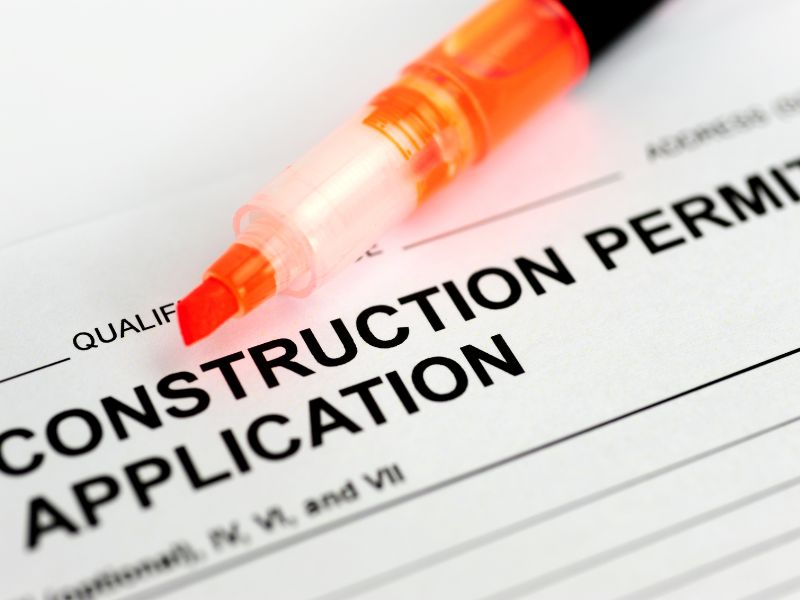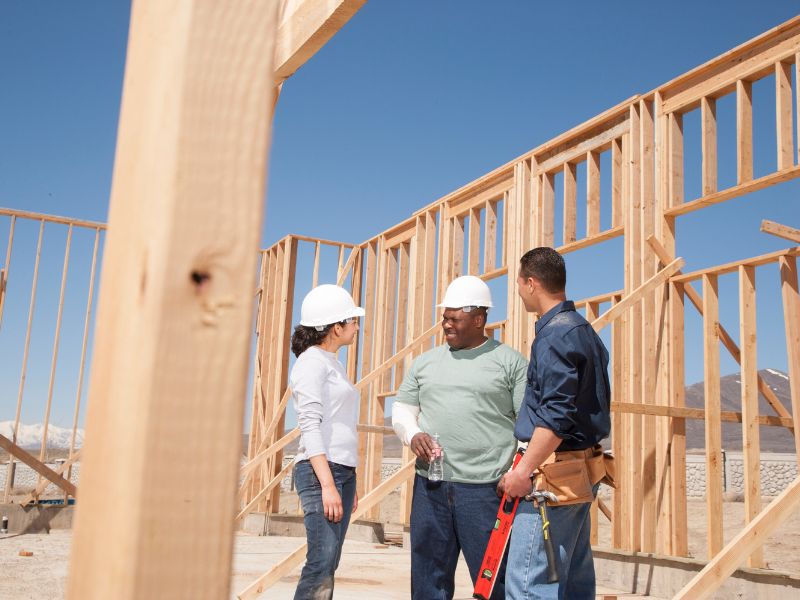Building or renovating a home is an exciting endeavor, but ensuring the safety of the construction process is paramount. Safety inspections and permits play a crucial role in safeguarding both the construction workers and future homeowners. We will explore how safety inspections and permits are conducted, their significance in home construction, and what consumers need to know to ensure a safe and secure living environment.
Safety Inspections in Home Construction: Safety inspections are systematic examinations of construction sites to identify and rectify potential hazards. These inspections are typically carried out by qualified professionals, such as building inspectors or safety engineers, who assess various aspects of the construction process to ensure compliance with safety regulations.
Structural Integrity: Inspectors assess the structural components of the construction, including the foundation, framing, and roofing, to ensure they meet the prescribed safety standards.
Electrical Systems: Safety inspections cover electrical wiring, outlets, and panels to verify compliance with electrical codes, reducing the risk of electrical fires and other hazards.
Plumbing and HVAC Systems: Ensuring that plumbing and HVAC systems are installed correctly is vital. Inspectors check for potential leaks, proper ventilation, and compliance with plumbing and mechanical codes.
Fire Safety Measures: Inspection includes assessing the implementation of fire safety measures, such as the installation of smoke detectors, fire extinguishers, and proper exit routes.
Permits in Home Construction: Permits are legal documents issued by local authorities that grant permission to carry out specific construction activities. They are an essential part of the construction process, ensuring that the work meets safety standards and adheres to zoning regulations.
Building Permits: Required for new constructions, additions, or significant renovations, building permits are essential to confirm that the proposed work complies with building codes.
Electrical and Plumbing Permits: For electrical and plumbing work, specific permits are necessary. These permits ensure that licensed professionals perform the installations, reducing the risk of faulty wiring or plumbing issues.
Zoning Permits: Zoning permits focus on land use regulations, ensuring that the construction aligns with the intended purpose of the property and local zoning ordinances.
Consumer Awareness: As a consumer, being informed about safety inspections and permits is crucial for your well-being and the longevity of your home. Here are some key points to consider:
Verify Proper Licensing: Ensure that the construction professionals working on your project are licensed and qualified. Licensed contractors are more likely to adhere to safety standards.
Ask for Documentation: Request documentation of all necessary permits before construction begins. This ensures that the project has undergone the required approvals.
Participate in Inspections: Where possible, be present during safety inspections to gain insights into the condition of your home and address any concerns with the inspector.
Stay Informed about Local Regulations: Familiarize yourself with local building codes and regulations. Awareness of these standards empowers you to hold contractors accountable for meeting safety requirements.
Safety inspections and permits are not just bureaucratic hurdles; they are essential safeguards that contribute to the well-being of your home and those who inhabit it. By understanding the importance of these processes and actively participating in them, consumers play a pivotal role in creating a safe and secure living environment for themselves and future generations.






